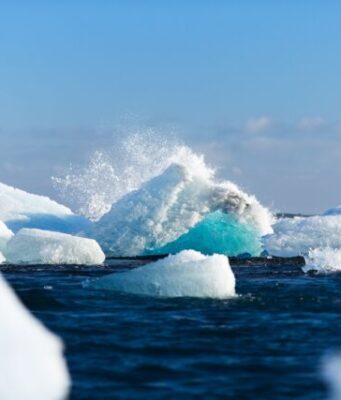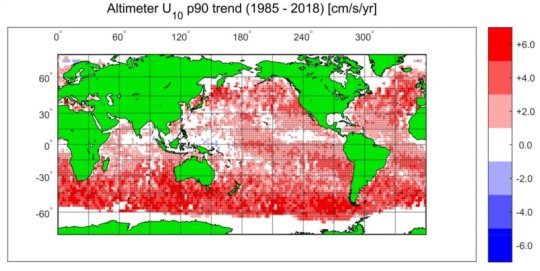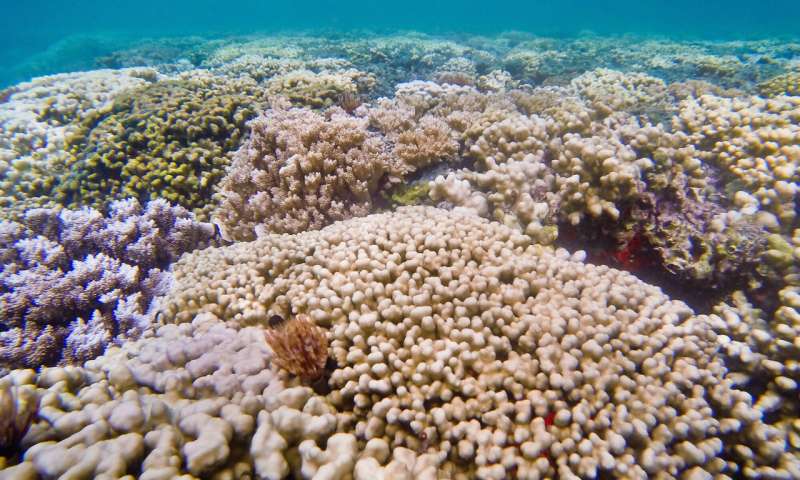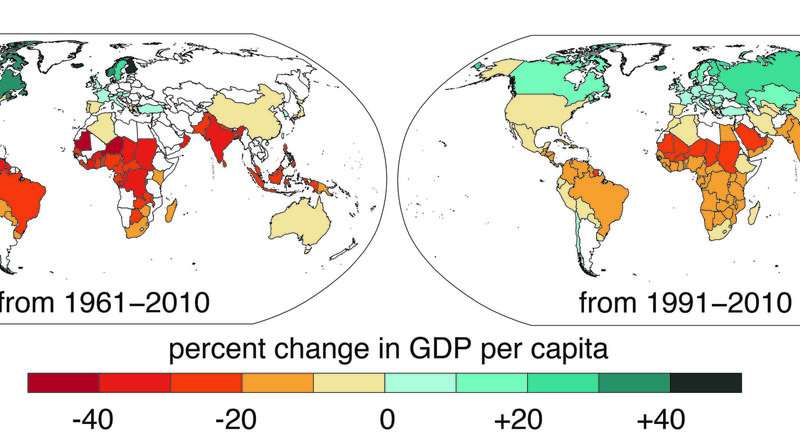In an unusual new study, scientists say they have detected the fingerprint of human-driven global warming on patterns of drought and moisture across the world as far back as 1900. Rising temperatures are well documented back at least that...
A study by North Carolina State University researchers finds that a new cookstove design, which makes use of compressed wood pellets, reduces air pollution by about 90% for a range of contaminants associated with health problems and climate change....
A "sleeping giant" hidden in permafrost soils in Canada and other northern regions worldwide will have important consequences for global warming, says a new report led by University of Guelph scientist Merritt Turetsky.
Scientists have long studied how gradual permafrost thaw occurring...
An international team of scientists has found part of the world's largest ice shelf is melting 10 times faster than expected due to solar heating of the surrounding ocean.
In a study of Antarctica's Ross Ice Shelf, which covers an...
The idea of the heat island—that densely built-up urban areas are considerably hotter than the rural and semi-rural landscapes that surround them—has been extensively studied and is widely accepted by academics and the public.
But a new study by a...
There are two primary causes of global mean sea level rise - added water from melting ice sheets and glaciers, and the expansion of sea water as it warms. The melting of Antarctica's ice sheet is currently responsible for...
Extreme ocean winds and wave heights are increasing around the globe, with the largest rise occurring in the Southern Ocean, University of Melbourne research shows.
Researchers Ian Young and Agustinus Ribal, from the University's Department of Infrastructure Engineering, analysed wind...
Canada's oil sands CO2 emissions are significantly higher than indicated by industry data collected using internationally recommended methods, according to a study published Tuesday.
Environment Canada scientists flying over the region took atmospheric measurements and found CO2 emission intensities up to 123...
Climate change and ocean warming threaten coral reefs and disrupt the harmonious relationship between corals and their symbiotic algae, a process known as "coral bleaching." However, a new study conducted by scientists at the University of Hawai'i (UH) at...
A new Stanford University study shows global warming has increased economic inequality since the 1960s. Temperature changes caused by growing concentrations of greenhouse gases in Earth's atmosphere have enriched cool countries like Norway and Sweden, while dragging down economic...
A transition from coal-based energy to cleaner-burning gas has long been viewed as a staple of many climate action plans, despite concerns over leakage and possible harmful emissions. A recent study published in the journal Nature Climate Changefinds that not...


















